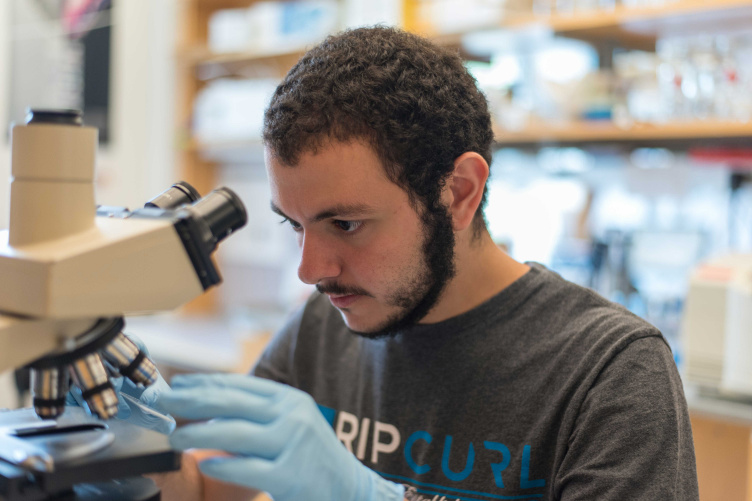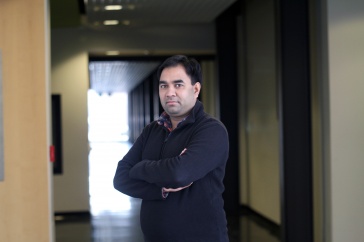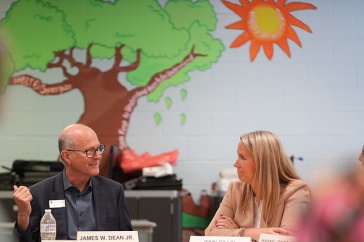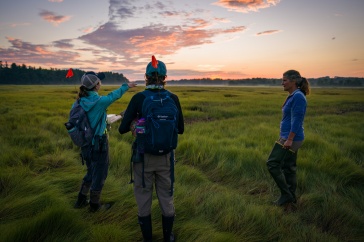
Yusuf Ebrahim '17 (above) and classmate Bria Frehner ’17 have been researching the role tumor-suppressant protein p53 plays in the formation of cancer.
Bria Frehner ’17 first started conducting research on cancer cells in professor Charles Walker’s lab the summer after her freshman year. Yusuf Ebrahim ’17 met Walker during his first semester at UNH, in an intro to cell biology course Walker was teaching. On Saturday the pair will present what they’ve learned about the role tumor-suppressant protein p53 plays in the formation of cancer at the 18th annual Undergraduate Research Conference.
See It on Saturday
Ebrahim and Frehner will present their work, "A Study of p53 Cytoplasmic Sequestration in Acute Myelogenous Leukemia Patient Samples," at Saturday's COLSA Undergraduate Research Conference along with dozens of other student researchers from the College of Life Sciences and Agriculture.
Here's a sampling of topics:
Understanding a Rare Pediatric Cancer Cluster Along the New Hampshire Seacoast
Examining the Presence of Magnetoreception in the American Lobster
Daily Distance Moved and Home Range Analysis of Female Cheetahs on Namibia’s Commercial Farmland
Entanglement of Grey and Harbor Seals at Duck Island Ledges, ME
Profiling the Health, Wellness, and Nutrition of Collegiate Dancers
Differential Gene Expression Patterns Contributing to Color Mimicry within the Imitator Poison Dart Frog
Characterizing an Unknown Blue Whale Population in the South Atlantic Ocean through Acoustic Analysis of Song
Behavioral and Biological Markers Underlying Vulnerability to Heroin Abuse

Their research builds on a body of work taking place in Walker’s lab that is focused on p53 in acute myeloid leukemia (AML). The student researchers have looked at samples from patients with AML to see how p53 moves through cells and whether it triggers a signal for the cell to kill itself off if it detects something has gone wrong.
“In normal healthy cells in all of our bodies, when a cell begins to become cancerous or have other DNA damage, the cell signals a pathway so that the cell will kill itself. This protects the body since the cell can no longer replicate and produce more damaged or cancerous cells,” says Frehner, a biomedical science major minoring in international affairs. “This is called the apoptotic pathway — programmed cellular death; p53 is important because it needs to move from the cytoplasm to the nucleus of the cell in order to trigger the cascade of this apoptotic pathway.”
“Working on this research has shown me that research is a huge part, possibly the largest part, of how and why our medical and scientific world develops and moves forward,” says Frehner, who received a Research Experience and Apprenticeship Program (REAP) award from the Hamel Center for Undergraduate Research in 2014.
Ebrahim, a biomedical science major who plans to go on to medical school, was awarded a REAP in 2015 and Summer Undergraduate Research Fellowship in 2016. He credits his first semester in Walker’s lab with teaching him techniques that formed the groundwork for his recent research.
“I love cell biology and love the opportunity to apply what I've learned in classes to use interesting techniques and find fascinating results, and this project in particular because of its medical relevance and potential benefit to people,“ Ebrahim says.
-
Written By:
Jody Record ’95 | Communications and Public Affairs | jody.record@unh.edu



















































